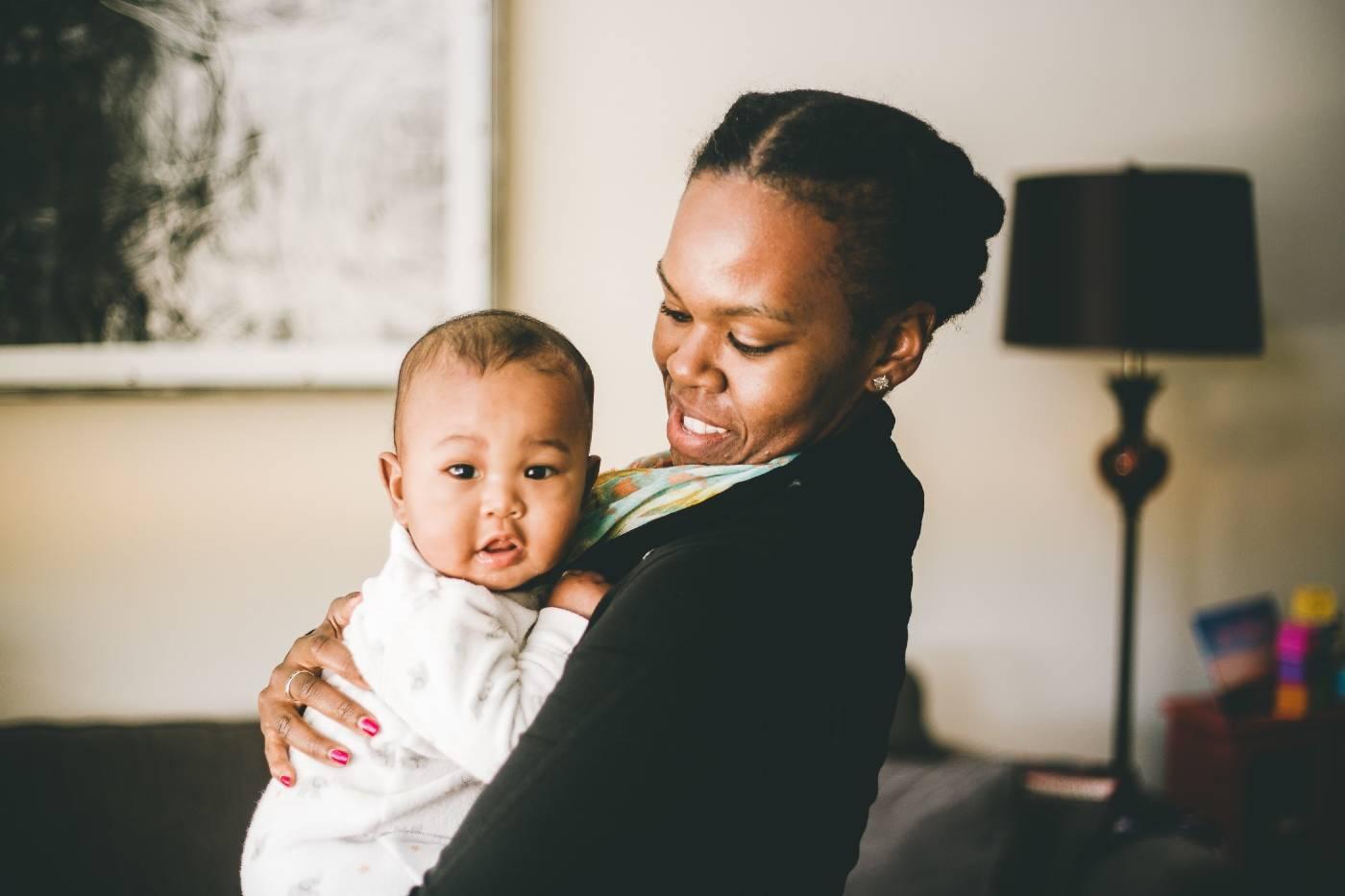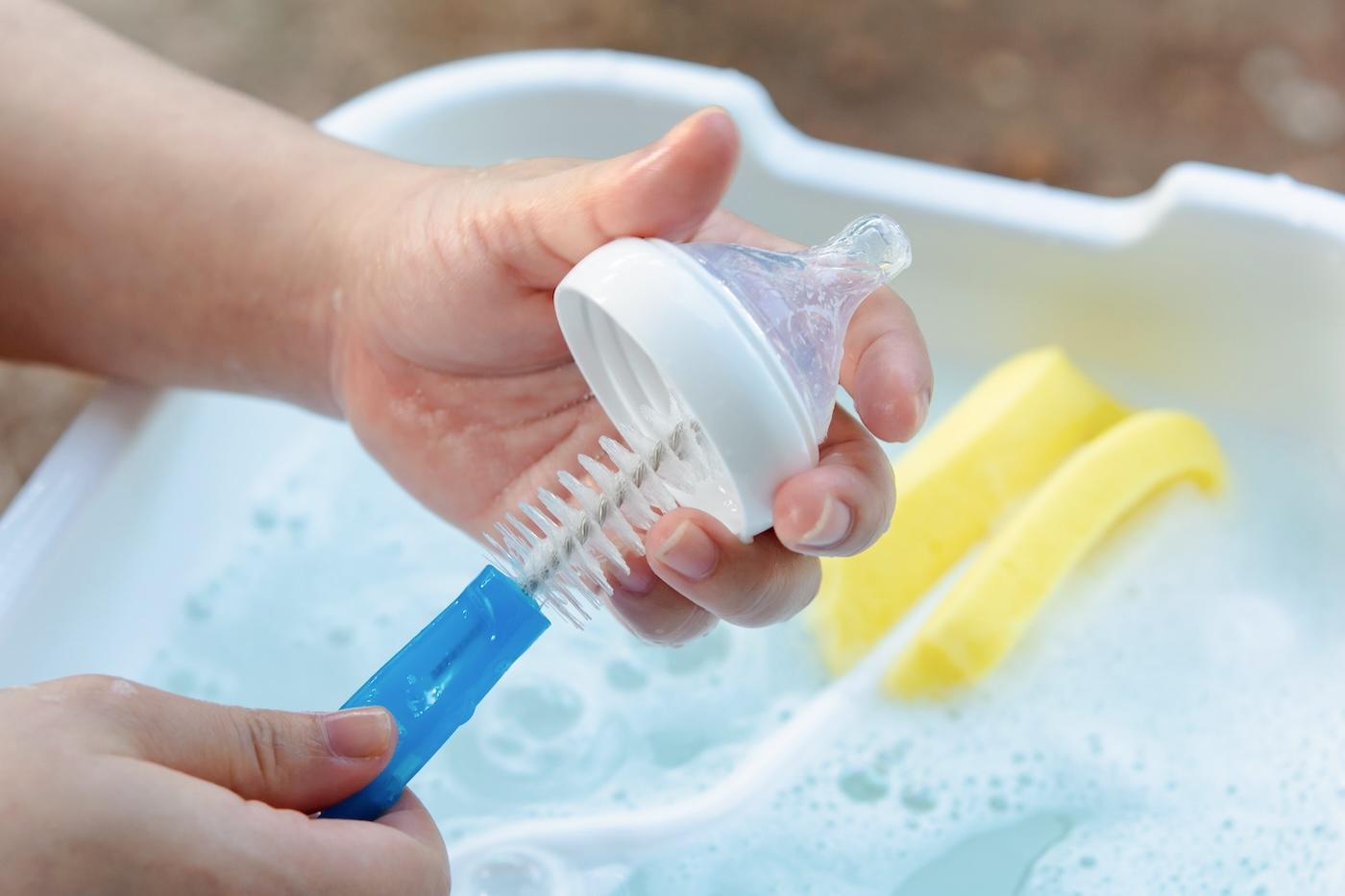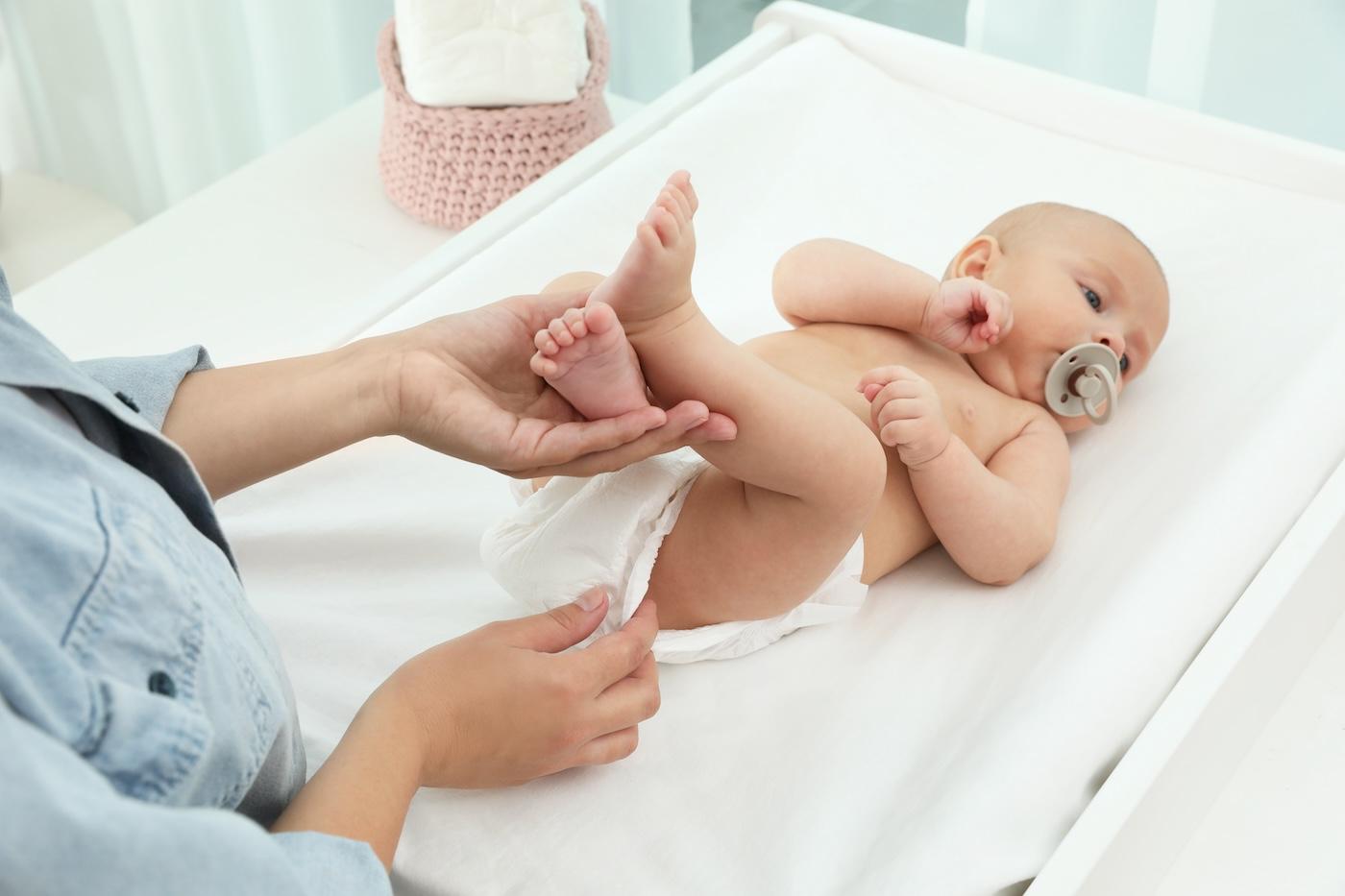BABY
Baby Milestones to Have on Your Radar
There’s an enormous amount of growth during your baby’s first 12 months—here’s what to look out for!

Written by
Happiest Baby Staff

The first year of your baby’s life is filled with so many thrilling changes! There’s an enormous amount of growth during your baby’s first 12 months. Peppered throughout that year are major achievements—like smiling, rolling over, and sitting up—called developmental milestones. These milestones are broken into these broad categories:
- Physical development
- Sensory and cognitive development
- Social-emotional development
In most cases, your baby will gain new skills in a certain order and during a specific age range. For instance, your precious nugget will learn to crawl before learning to walk. The kicker, of course, is that this isn’t always the case! In fact, the Centers for Disease Control and Prevention recently removed “crawling” from its milestones checklist. And, as you know, kids like to keep you guessing!
Sometimes it’s hard to keep up with whether your baby is “keeping up.” While tracking milestones are often a big source of stress for parents, it’s natural to wonder what’s coming around the bend. Here’s what to expect when it comes to your baby’s development for the first year—just please keep in mind that all little ones are…a little different! Plus, premature babies are on their own timetable (their milestone trajectory is based on their due date and not their birth date). Raising babies is not a race!
Developmental Milestone Timetable
While your baby’s developmental milestones should be monitored at each one of their well-baby visits, it’s always okay to bring up concerns if you are worried that your little one is lagging behind. The following are guidelines, not hard-and-fast rules. With that, here’s what to expect…give or take!
Around 1 Month
Physical development: Right now, your baby is operating on reflexes, which are involuntary movements, such as rooting around for a nipple and sucking. Your baby can move their head from side to side, but their noggin will still be pretty floppy and requires support when you hold them. You wee one also keeps their hands in tiny, tight fists.
Sensory and cognitive development: Your baby is starting to recognize some sounds…namely your voice! While their hearing is fully developed, their vision still needs some time to catch up. Your baby can focus on objects 8- to 12-inches away. Black and white or contrasting images are easiest for your little one to see.
Social-emotional development: You’ll have to wait quite a bit until you hear words, but your baby still knows how to get their point across...with crying! Your little one may make other noises as they become more responsive to you. Even though they still sleep quite a bit, your bean now experiences short periods when they’re awake and alert.
Around 3 Months
Physical development: At around 2 months old, your baby will start moving around more, kicking their legs, and unclenching those fists. All of this new wiggling means your baby will start gaining some muscle. Cute baby stretches are in full force now, too, as your little one begins to abandon their usual folded-up fetal position. Your tot can now hold their chest and head up during tummy time, even if they aren’t a fan of being on their bellies!
Sensory and cognitive development: Vision is improving! Your baby can now observe and follow people and items they’re familiar with…and from further away. They’re even turning their head toward a sound they hear. You’ll probably notice your baby enjoys holding certain toys and shaking them, especially if they make noise. Your smartie is learning about cause and effect, thanks to sound.
Social-emotional development: Your baby may not communicate with words yet, but they’re offering you more adorable facial expressions. Your precious baby may even grant you a real smile now…not just a gas-fueled grin! As if the smiles weren’t enough, your baby is likely turning up the babbles and coos, too. Finally, your nugget loves it when you talk with them—keep doing it!
Around 6 Months
Physical development: Between 6 months and 7 months (give or take) your cutie will likely be able to roll over in both directions. And—hold onto your hats—your growing baby might get on their hands and knees now and rock, readying themselves to crawl! They may be able to sit on their own with a pillow behind them…and stand while holding your hands.
Sensory and cognitive development: Your baby is exploring big time…with their mouth! And everything is fair game to taste. Bolstering their cause-and-effect know-how, your baby will likely take quite a shine to such games such as “Dropping Spoon off Highchair” or “Tossing Cup Across Room”! “Words” often start to creep in now, too. Keep an ear out for your baby saying things such as “bababa” and “dada.”
Social-emotional development: Wow! By now, your little one may start to respond to their own name and understands simple words, such as “eat,” “bottle,” or “bath.” You might be able to figure out when your baby is happy, sad, or mad by their sounds and expressions. Your nugget loves interacting with you, showering you with smiles, coos, and laughter.
Around 9 months
Physical development: Your baby probably sits on their own, pull themselves up to stand, and “cruise” along furniture. (Your lovebug is also excellent at quickly shifting positions.) Their pincer grasp should be in effect, too, allowing your baby to pick up their Cheerios with their pointer finger and thumb.
Sensory and cognitive development: Your baby is figuring out how to tell you “no” by turning away from you. The upshot? You might hear “mama” and “dada” and maybe even a “bye-bye” soon…but don’t worry if your kiddo’s “words” are still unrecognizable. In other news, your little one is in the process of learning about something called object permanence. This means, your child is starting to understand that people and items still exist even if they disappear from sight. Storytime gets more enjoyable now since your baby is better able to pay attention to the pages while you read. Not helping storytime, however: Your kiddo’s new-found fascination with banging objects to make noise!
Social-emotional development: Your sweet babe may start to cling to grown-ups (like you!) and become distraught when you leave them, but this is a time where they can become attached to a lovey, like a special blanket or stuffed animal, and having this handy often makes transitions easier.
Around 12 months
Physical development: You likely have a mover and shaker on your hands now! Most babies will take those first few steps around their first birthday. Even if your sweet pea isn’t toddling quite yet, they may be crawling around like a champ and able to stand on their own. Your growing baby may drink from a cup and brush their hair now—and place objects in and out of containers.
Sensory and cognitive development: The throwing, banging, and dropping of things continues, as your baby explores how objects work. Your baby can start to understand and respond to simple requests, like “please pick up your bear.” Their babbling might get more complex, rising and falling as they speak. They may try to imitate the words you say.
Social-emotional development: You may notice your 1-year-old is more reserved with people they don’t know…and some tears may fall when you leave them. On the plus side: Social games, like peekaboo and pat-a-cake bring your baby oodles of joy. And your sweetie may try to get your attention by repeating a sound or pointing. They’re becoming more independent and can start helping with dressing by putting out their arms or legs. PS: You growing kiddo is super-proud of their independence, too!
What to Do If There’s a Concern
It’s important to understand that developmental milestones can look different for every baby. You may notice your baby excels in one area while appearing to lag behind in another. If your child does have a delay in one or more areas of their development, however, identifying the concern as early as possible makes a big difference. The best thing you can do is to inform your child’s healthcare provider if you have any concerns.
Disclaimer: The information on our site is NOT medical advice for any specific person or condition. It is only meant as general information. If you have any medical questions and concerns about your child or yourself, please contact your health provider.
SHARE THIS ARTICLE
MOST LOVED
Sleepytime Sidekicks












